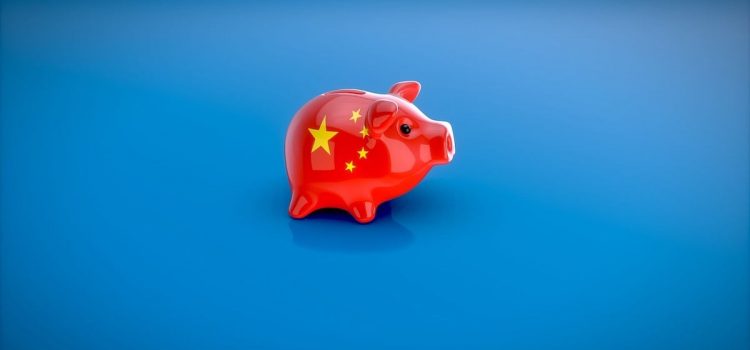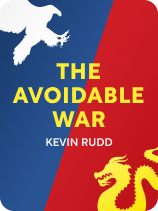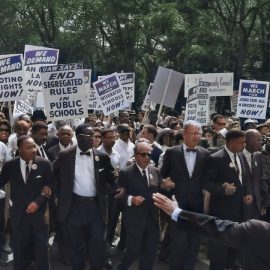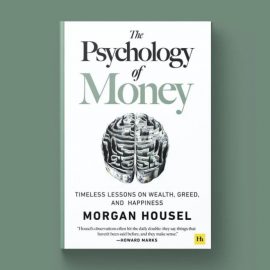

This article is an excerpt from the Shortform book guide to "The Avoidable War" by Kevin Rudd. Shortform has the world's best summaries and analyses of books you should be reading.
Like this article? Sign up for a free trial here.
How does Xi Jinping use China’s economy to achieve his aims? How does the Chinese economy impact the US?
According to diplomat Kevin Rudd, China changed course when Xi Jinping came to power. Rudd believes that the core of President Xi’s vision is retaining control over the Chinese Communist Party (CCP), keeping the CCP in power, and using Marxist-Leninist ideology to guide the country’s economic policies.
Keep reading to learn why Rudd thinks that China’s economic reforms are really about keeping Xi and the CCP in power.
China’s Economic Reform
Rudd points out China’s shifts in domestic and international policies under the leadership of President Xi starting in 2013. Xi’s goals—and the shift they represent from previous years—are key to understanding why tensions between the US and China have escalated over the last decade. Rudd says that, because the CCP is rooted in Marxist-Leninist ideology (which prioritizes the economic well-being of the populace), China’s economic reforms and resulting prosperity for the Chinese people is Xi’s primary strategy for keeping himself and the CCP in power.
According to Rudd, the Chinese people will be content with the CCP as long as unemployment stays low, the standard of living continues to rise, and disparities of wealth stay low. If the economy falters, however, Xi and the CCP would face political backlash and risk losing power. China’s economic reforms—rooted in these driving forces—are referred to as the New Development Concept (NDC).
(Shortform note: Rudd’s analysis that the CCP has to keep the economy thriving to maintain political power also applies to US politics. Research shows that since the US’s inception, Americans consistently judge incumbent presidents in elections based on how well the economy is doing.)
Rudd writes that the NDC contributes to tensions with the US because it differs from American ideology about free market capitalism and because of its direct economic impact on the US. For example, the Marxist-nationalist NDC explicitly prioritizes broad economic prosperity and aims to prevent private companies from accumulating excessive individual wealth. Xi’s administration enforces this by seizing partial ownership of companies (meaning they become partially state-owned enterprises), cracking down on monopolies and corruption, and urging wealthy companies to donate to social causes.
(Shortform note: Some groups point out that while generosity and philanthropy have long been a part of China’s culture, the CCP’s suggestion that private companies donate to social causes is more like coercion since the companies may fear retaliation by government regulators if they don’t comply.)
In contrast, the US culturally venerates and legally protects private enterprises. Rudd suggests that both the US and China fear that the economic ideology of the other could threaten their own by fostering internal political resistance.
(Shortform note: Although the underlying economic ideologies of both countries are at odds with each other, in reality, neither country has a completely free market economy or a completely socialist economy. Economists point out that the US has a “mixed” economy, meaning that it has some features of capitalism and socialism. It has private property and private enterprise, but the government still intervenes in economic activities such as infrastructure investment, industry bailouts, and relief programs. China, despite its state-owned enterprises and strict regulation by the CCP, still has a strong private sector.)
In addition to the ideological differences between the two economic models, Xi’s NDC directly influences the US economy in negative ways (from the US perspective). For example, Rudd explains that China has curbed investment opportunities for US companies in the Chinese market and increased regulations on American imported products, making it harder for US companies to profit from Chinese markets. (Shortform note: The US recently announced a similar policy toward China, which will limit American investment in Chinese companies. It aims to slow down China’s technological advancement by preventing Americans from investing in the Chinese microchip industry and other technology sectors.)

———End of Preview———
Like what you just read? Read the rest of the world's best book summary and analysis of Kevin Rudd's "The Avoidable War" at Shortform.
Here's what you'll find in our full The Avoidable War summary:
- The complex factors contributing to hostility between the US and China
- How a military conflict between the US and China can be avoided
- The huge toll a US-China war would take on global stability






